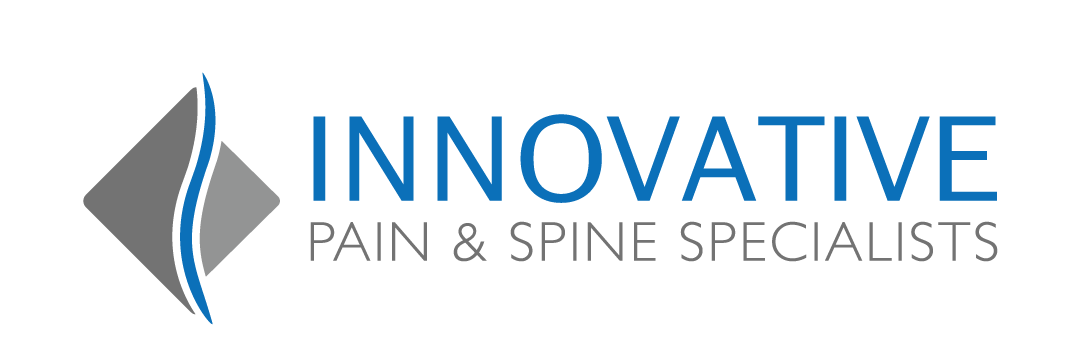Medication Management
Our pain medicine providers at Innovative Pain & Spine Specialists in Lincoln and Omaha, Nebraska have a number of tools they can use to help patients manage, and sometimes eliminate, pain. These tools include minimally-invasive procedures, physical rehabilitation, as well as medications. Published research shows that utilizing medications with different mechanisms of action can lead to improved overall pain relief. As part of a comprehensive pain management plan, your provider might prescribe one or more of the medications described here.
Narcotics
Narcotics are usually prescribed for severe breakthrough pain. These medicines range from mild to extremely potent. Among the mild narcotics are brand names such as Nucynta® and Ultram®. Moderately potent drugs include hydrocodone, whose brand names include Lortab®, Norco®, and Vicodin®. The most potent narcotics are oxycodone (whose brand names include OxyContin®, Percodan®, Percocet®), hydromorphone (brand name Dilaudid®) morphine, methadone, and fentanyl. The appropriate potency and amount needed for management of your pain will be determined by your providers.
Narcotics have the potential to be habit-forming. Many people who are prescribed narcotics worry about becoming addicted to them. Your Innovative Pain and Spine Specialists providers are well aware of these addiction risks, and will monitor you to ensure you are taking these powerful drugs as prescribed. Recommended guidelines have been developed for using controlled substances for treating pain. The major features of these guidelines include a comprehensive evaluation of the patient, a documented treatment plan, a discussion of the risks and benefits of opioid therapy, a signed controlled-substances agreement, periodic review, and compliance with controlled substances loss and regulation. It is very important that you follow your prescribing instructions. Working together, you and your pain medicine physician can make sure that the narcotics prescribed to you are safe and effective.
NSAIDS
The most commonly used drugs are called non-steroidal anti-inflammatory drugs (NSAIDS). In their mildest form, these drugs are available over-the-counter. They include aspirin and ibuprofen. Prescription NSAIDS include Lodine®, Naprosyn®, Voltaren®, Celebrex®. Aspirin has been around for generations and its use as a pain reliever and fever reducer is well-established. Ibuprofen is also available over-the-counter in generic form and brand names such as Advil® and Motrin®. Ibuprofen is a proven pain reliever and fever reducer. It also helps reduce inflammation, a common cause of pain. Acetaminophen, available both generically and as the brand name Tylenol®, is not an NSAID, but it is also easily available over-the-counter. It is a well-established pain reliever and fever reducer; however, it lacks the anti-inflammatory ability of NSAIDS. Doctors commonly prescribe acetaminophen along with an NSAID. Your pain medicine provider will tell you if that is the right combination for you.
Other Pain Management Medications
As part of your overall treatment plan, other medications might be prescribed for you. Muscle relaxants have not been shown to be effective for chronic pain management because muscle spasm is not likely to be the cause of chronic pain. However, in some patients, a muscle relaxant is needed. Your pain medicine provider will make that determination.
Antidepressants are often prescribed for patients with chronic pain. A patient does not have to be clinically depressed to benefit from taking an antidepressant. But living with pain is more than just physical—the psychological aspect is just as important. Patients diagnosed with both pain and depression usually receive higher doses of antidepressants than those who are not depressed. Antidepressants have been proven to be helpful for managing chronic pain due to nerve ending damage. Anticonvulsants, such as medicines used for epilepsy or other seizures, have proven to be helpful for dealing with pain caused by nerve injury or damage. Specific medications include gabapentin and pregabalin (brand name Lyrica®).
Which Medications Are Right For Me?
Medication management is one of the many ways your Innovative Pain & Spine Specialists provider will help you manage, and perhaps even eliminate, your pain. Your pain medicine provider will take into account the intensity and duration of your pain and other important factors, such as your age, other medical problems you might have, and the other medications you are taking. Deciding which pain medications and dosages that are right for you is based on your individual evaluation. Often times, one drug will work well for one patient but not another. That is why it is so important that you communicate with your pain medicine provider about the relief you are getting from whatever is prescribed to you.
Remember: pain-relieving drugs are just one aspect of your treatment plan. Your pain medicine provider takes a multidisciplinary approach to helping you manage your pain. Through the use of physical rehabilitation, medications, procedures, and complementary modalities, your pain can hopefully be better managed.




















